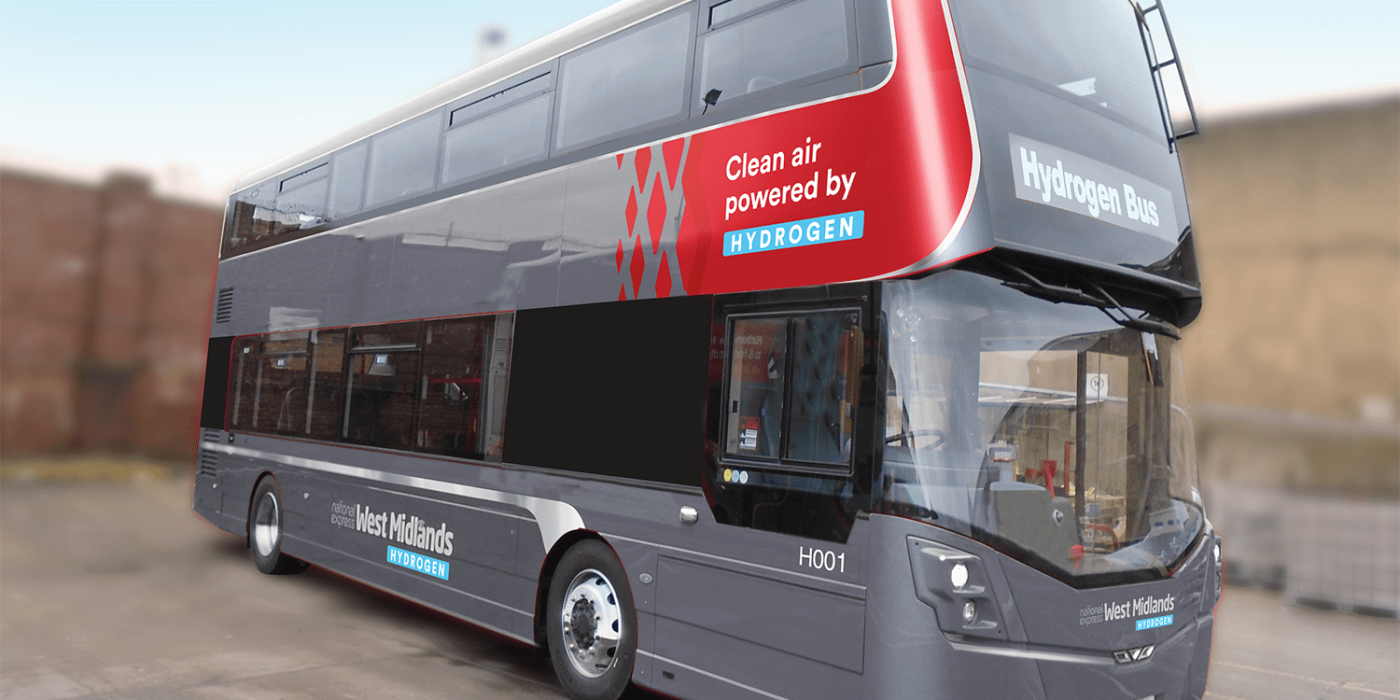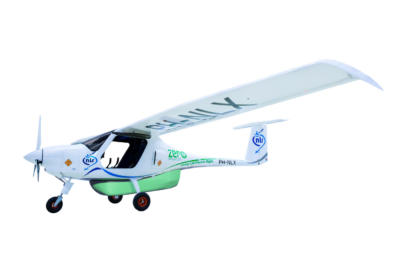20 fuel cell buses by Wrightbus for Birmingham
The English city of Birmingham has ordered 20 hydrogen double-decker buses. They will be manufactured by Wrightbus and will be used by the bus operator National Express West Midlands from April 2021.
The 20 new buses will be part of the Birmingham City Council’s Clean Air Hydrogen Bus Pilot. This pilot is aiming to kick-start the hydrogen market as a catalyst for the next generation of hydrogen buses hydrogen production and re-fuelling infrastructure development. The council have collaborated with the hydrogen specialists ITM who have the task of producing and dispensing the hydrogen from their new re-fuelling hub at Tyseley Energy Park.
The Wrightbus fuel cell buses are the world’s first hydrogen double-decker buses. These have already been supplied to Aberdeen and London, which were the first deployments of the fuel cell double-decker buses. Wrightbus is part of the H2Bus consortium, founded last year to popularize the technology across the European continent. This year has seen a significant increase in the number of municipalities across Europe putting out tenders for fuel cell buses as the technology gains attention.
Birmingham by National Express will operate the buses and aim to run them on the “new sprint” route, the city’s first uninterrupted cross-city route, connecting Walsall town centre to Birmingham Airport and Solihull.
Tom Stables, National Express UK Managing Director, said: “These new buses will be fitted out in our top-spec Platinum range, so customers will also benefit from free Wi-Fi, USB chargers and extra legroom. And of course, all that comes out of the exhaust is water vapour.”
The project has been funded through the Office for Low Emission Vehicles (OLEV), GBSLEP (Greater Birmingham & Solihull Local Enterprise Partnership), Birmingham City Council and JIVE project funding from the FCH JU (European Funding from the Fuel Cell Hydrogen Joint Undertaking). The FCH JU receives support from the European Union’s Horizon 2020 research and innovation programme, Hydrogen Europe and Hydrogen Europe Research.
Once the pilot project is completed, the monitored results of the pilot will be analysed. Measures will then be taken to ensure the ongoing commercial and operational viability of hydrogen buses so that a continued roll-out of hydrogen fuel cell technology is possible for bus fleets.
This is by no means Birmingham City’s first foray into zero-emission public transport. Most recently, BYD-ADL supplied 29 battery-electric double-decker buses this summer.





0 Comments